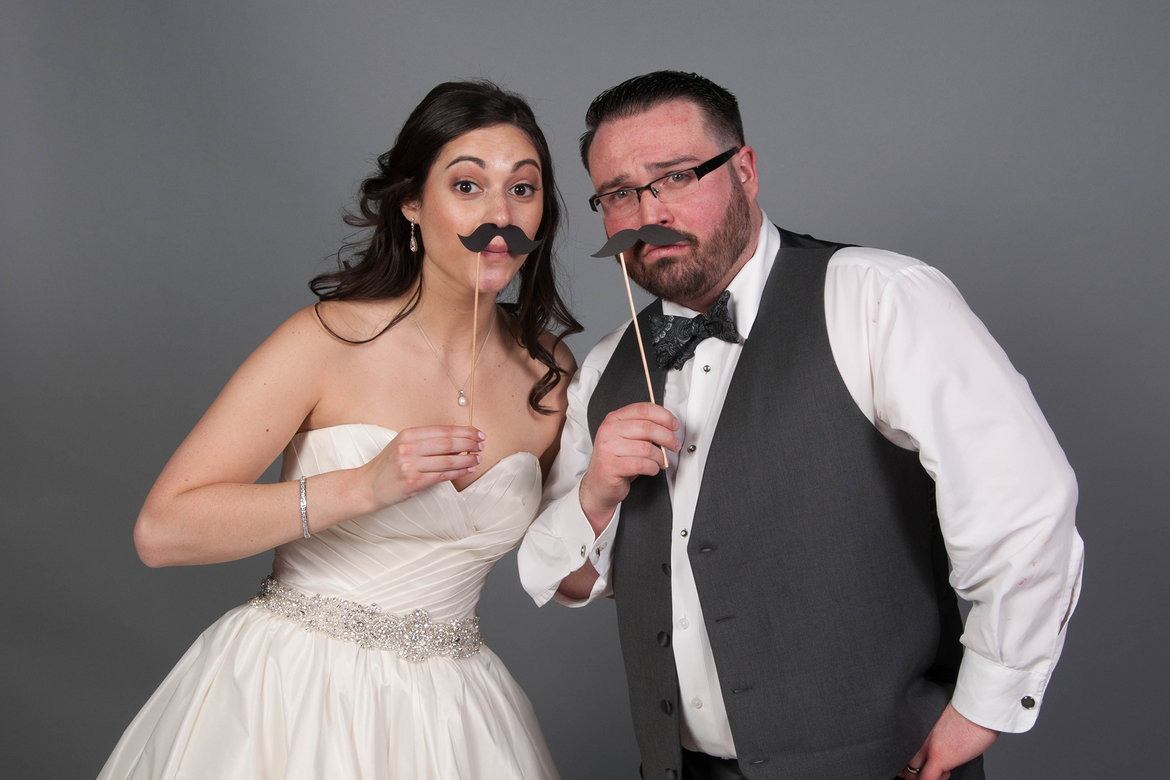My family and I often joke about the funny sayings my mother has; most notably, “Once you get engaged, you fight — a lot.” We all laughed her off when she first shared this gem with us. However, I now understand where she was coming from after having gone through the wedding-planning process.
Planning a wedding can be stressful because it forces two people to combine their set of values, not to mention their bank accounts. I didn't want my relationship with my fiancé to suffer the fate of this old wives’ tale, so I made a conscious effort to put the health of our future marriage ahead of our wedding day.
We had already been dating for eight and a half years on the day of our wedding, but I can’t help but feel we hit our stride as a couple during our engagement. We learned a lot about each other, and how to handle everyday challenges that we will encounter throughout our lives together. Here are seven ways that my husband Michael and I not only kept the peace throughout our engagement, but became closer than ever before.



1. Share your expectations of each other.
Have you ever heard the saying that "expectation is the root of all heartache?" I love applying it to all areas of life, but it's especially apropos during the engagement period. Before the two of you begin planning, it’s important to sit down and discuss what level of involvement you each want in the planning process. Perhaps one partner is interested in the music and food while the other wants to research flowers and stationery. There are lots of ways to divvy up the duties so that it's not an all-in or all-out situation. Having a conversation about it upfront will prevent arguments later down the road caused by one partner expecting more (or less) of the other.
2. Agree on finances upfront.
Discuss your individual financial situations and establish a realistic budget before you sign any contracts to prevent racking up debt. You don't want your celebration of a lifetime to prevent you from reaching future goals down the line, like buying a house.
3. Pick your battles (and your timing).
Planning a wedding may be the best crash course in compromise available. It's important to include elements specific to both of your individual tastes, preferences, and hobbies. If you disagree with something, step back and consider how much that one element truly matters to you. If it's not a lot, let that one go. However, don't be afraid to speak up for the components that are important to you. Lastly, make sure you discuss these topics at a time when both of you are in the correct frame of mind to make a rational decision. Pouncing on your partner as soon as he or she walks in the door probably isn't the best strategy!
4. Divide and conquer.
While I am admittedly a type-A perfectionist, I quickly learned that asking for help was a lot better than suffering on my own. My husband and I divided and conquered all of our wedding tasks, from big (booking vendors) to small (stamping and addressing envelopes). The key here is to trust each other, which is also a good lesson for marriage. Another important lesson is the ability to laugh things off. When you split up tasks, someone may make a mistake, but freaking out will only alienate your partner and make them feel excluded from the day.
5. Lean on each other for support.
When I got overwhelmed during the planning process, I found that the best thing to do was to talk to my fiancé. He would help calm me down and see things rationally. Bringing a problem — regardless of whether it’s related to the wedding — to your partner will only help you solve it faster. Having someone you can count on for better or for worse is the biggest wedding perk of them all.
6. Put each other first.
Brides tend to receive a lot of unsolicited advice on planning their wedding, especially from family members. It’s important for both you and your partner to put each other and your shared wedding vision first. Don’t give in to pressures of your family at the cost of selling out your partner. After you get married, you will create your own family unit of two. Start practicing shutting out negative influences that could ultimately drive a wedge between the both of you.
7. Don’t take each other for granted.
When you're in the thick of wedding planning, it's easy to lose perspective and envision anything beyond the big day that you've been working so hard to put together. But what comes afterward? Hopefully, a lifetime of marital bliss — but you can start working on that now. Make the time to go on fun dates together where wedding topics are off-limits. Do kind things for one another — even something as simple as washing the dishes or cooking dinner for your partner can make a world of difference on a particularly stressful day. Lastly, never forget to say "thank you." Make sure your partner knows how much you appreciate him or her and the honeymoon period will never truly end.
— Caitlin Rebecca Ryan
- ssainato's blog
- Log in or register to post comments








